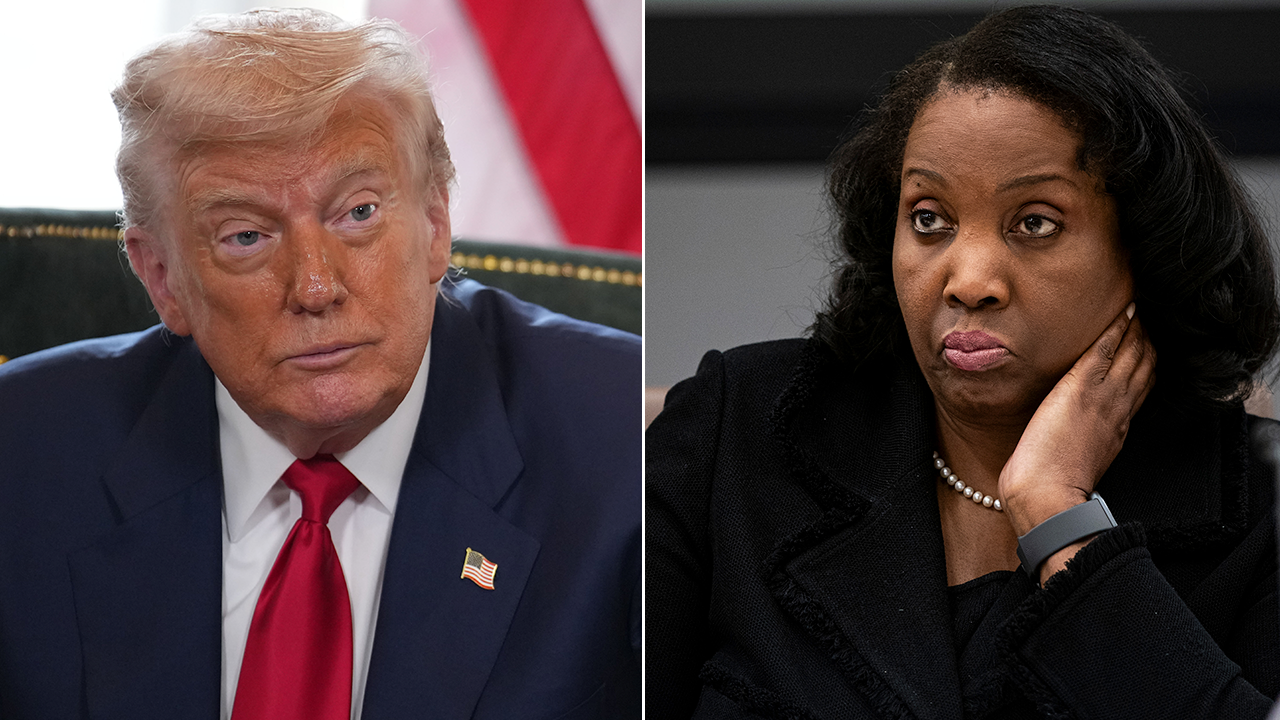
In a large turn of activities, a federal appeals courtroom has blocked former President Donald Trump's attempt to brush aside Federal Reserve Governor Lisa Cook from her position. This decision has set the level for a potential clash at the Supreme Court, raising questions about presidential powers and the autonomy of federal institutions. The ruling suggests a capability shift in how executive authority is exercised, in particular concerning appointments and dismissals inside the nation's financial structures.
Lisa Cook, appointed to the Federal Reserve by President Joe Biden, has been a outstanding figure in shaping financial coverage. Her role has been crucial, particularly at some stage in a time while the financial system is navigating via publish-pandemic recovery. The court's decision to shield her function underscores the significance of keeping balance within the Federal Reserve, an organization pivotal to the united states's monetary health. This move is visible as a reinforcement of the independence of federal businesses from political interference.
The appeals courtroom ruling isn't always just a victory for Lisa Cook but additionally a message approximately the boundaries of govt strength. By stopping Trump's try to cast off her, the court has emphasised the need for a balanced method in governance, wherein even the highest office must appreciate the bounds of its electricity. This choice is probably to resonate across diverse sectors, doubtlessly influencing how destiny administrations engage with impartial federal our bodies.
Many legal specialists expect that this example will sooner or later reach the Supreme Court, given the excessive stakes concerned. The Supreme Court's choice will be pivotal, as it may set a precedent concerning the quantity of presidential authority over federal appointments. This potential SCOTUS case could redefine the landscape of federal governance and separation of powers in the United States, influencing the connection between the government branch and unbiased organizations.
The criminal conflict surrounding Lisa Cook’s role is more than only a personal victory; it represents a broader war over the autonomy of the Federal Reserve. As one of the key gamers inside the country's economic framework, the Fed's independence is critical for preserving economic stability and credibility. This court docket ruling is a step toward safeguarding that independence, ensuring that economic coverage stays loose from partisan politics.
Supporters of Lisa Cook have hailed the court's choice as a win for democracy and the rule of regulation. They argue that permitting political affect over the Federal Reserve could undermine public consider inside the group. By securing Cook's role, the court docket has bolstered the concept that critical financial positions need to be shielded from undue political pressures, allowing experts to cognizance on coverage without fear of partisan repercussions.
On the other hand, critics of the selection argue that it limits the President's capability to control govt appointments correctly. They contend that the President need to have the authority to make adjustments in key positions to align with their management’s priorities. This debate highlights the continued anxiety between keeping an unbiased monetary gadget and ensuring that elected officers can put in force their economic agendas.
As the situation unfolds, all eyes are at the Supreme Court and its capability involvement on this high-profile case. The final results will in all likelihood have lasting implications for the way future administrations have interaction with independent businesses. This case should redefine the bounds of executive power, affecting how presidents manage their appointments and the diploma of influence they can exert over federal establishments.
The court's choice has sparked good sized dialogue approximately the stability of power in authorities, particularly concerning the roles of the executive and judicial branches. It raises crucial questions on how the United States can hold a system where checks and balances are respected even as still permitting the government branch to feature successfully. This ongoing prison saga is a reminder of the sensitive nature of governance in a democratic society.
In the period in-between, Lisa Cook continues her paintings on the Federal Reserve, contributing to the shaping of economic policy throughout these essential times. Her presence inside the Fed is visible as important for the stableness of the U.S. economy, and the court's decision guarantees her persisted affect in guiding the state's economic destiny. As trends arise, the kingdom watches intently, waiting for how this legal struggle will in the end form the panorama of American governance.









